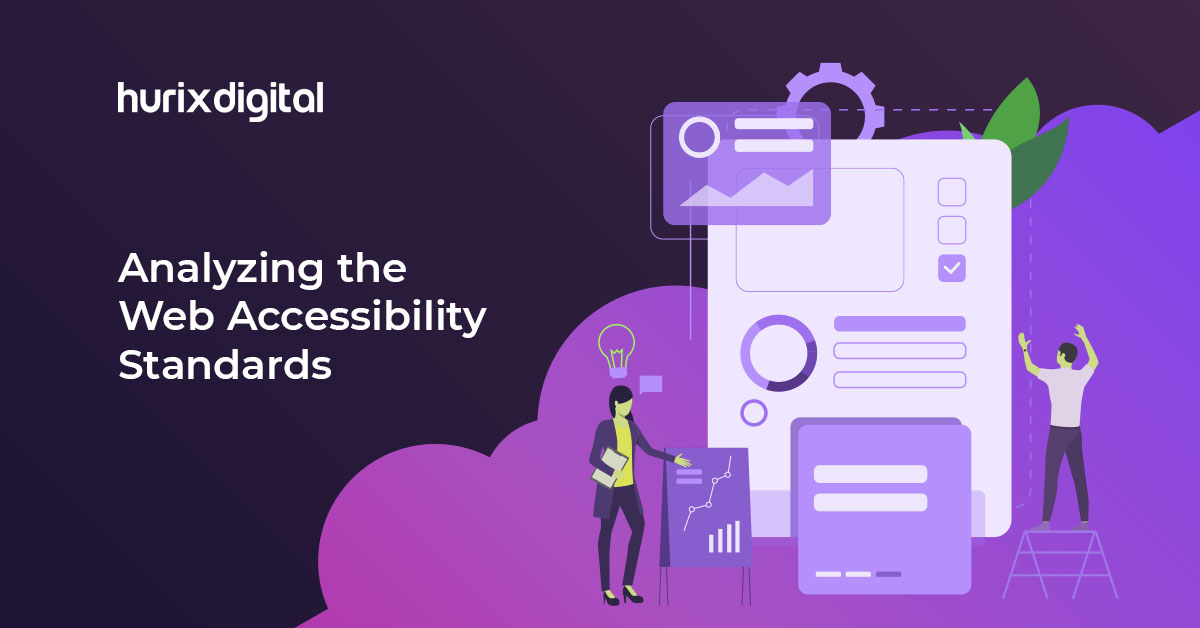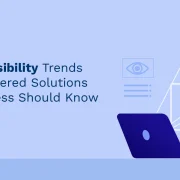
Analyzing the Top 4 Web Accessibility Standards
Web accessibility standards refer to specific guidelines that webpages, websites, and digital applications must follow to ensure accessibility for users with disabilities and impairments.
Additionally, web accessibility standards ensure inclusivity and equal access to information and prove to be highly beneficial for businesses and e-commerce platforms by allowing them to reach a wider audience and potential customer base.
The user experience while accessing web pages is further enhanced by web accessibility standards. As a result, the website becomes more user-friendly, easy to navigate, and stable.
Lastly, various countries have made accessibility standards mandatory under disability discrimination laws, administering a more legal and ethical functioning of businesses and companies.
Who Manages the Web Accessibility Standards?
Numerous organizations, companies, and groups handle web accessibility standards. However, the most popular web content accessibility guidelines, also called WCAG, have been issued by World Wide Web Consortium (W3C).
Some other famous organizations and protocols for web accessibility standards are:
- Section 508 of the Rehabilitation Act
- Electronic and Information Technology Accessibility Standards
- European Accessibility Act
These various organizations and companies often work together to create and deliver more robust web accessibility guidelines.
World Wide Web ConsortiumThe World Wide Web, or W3C, is an international organization founded by Tim Berners Lee in 1994. The organization was created to ensure the long-term and sustainable growth of the web. Over time, W3C has developed numerous standards for technologies like HTML, CSS, and XML through WCAG.
WCAG or web content accessibility guidelines can be understood as a set of internationally recognized web accessibility standards implementing a more accessible and inclusive web usage.
For instance, people with visual impairments, cognitive defects, or neurological disabilities will not be able to access the web like users without disabilities until certain features and tools are provided to them.
The accessibility standards have been defined keeping these four principles in mind:
- Perceivable
- Operable
- Understandable
- Robust
These principles make each web page element, like text, image, multimedia, etc., comprehendible and easy to navigate for people with disabilities. The version of WCAG currently being used is WCAG 2.1, which was launched in June 2018.
Accessible Rich Internet Applications (ARIA)
ARIA, or Accessible Rich Internet Applications, is also a W3C specification that defines how web content can be made more inclusive for people with disabilities, including through the assistive technology they use.
It offers a method for incorporating semantic data into HTML elements to aid assistive technology in better comprehending the function and status of web elements, facilitating user interaction.
Some of the common guidelines of ARIA are:
- Make sure that a keyboard can be used for all interactions done on a web page, like button clicks, form submissions, etc.
- Multiple headings, sub-headings, pointers, and landmarks are utilized to provide precise and consistent navigation.
- To inform users of updates to the website, use the ARIA live region feature
- For images and other non-text items, an alternate text link must be provided
Electronic and Information Technology Accessibility Standards (EITAS)
State agencies in Texas, US, utilize a set of accessibility guidelines called Electronic and Information Technology Accessibility Standards (EITAS).
EITAS is based on the Web Content Accessibility Guidelines (WCAG) published by the World Wide Web Consortium and is intended to ensure that electronic and information technology used by state agencies is accessible to individuals with disabilities.
All the state agencies in Texas are required to follow EITAS regulations strictly. Failure to do can lead to strict punishments and fines. In addition, EITAS takes into its ambit a wide range of web-based and technological products like websites, computer programs, eBooks, electronic documents, etc.
The Texas Department of Information Resources (DIR), which oversees EITAS web accessibility standards, regularly offers advice and resources to assist state agencies in adhering to them.
European Accessibility Act (EAA)
Approximately 135 million people have disabilities in the EU. Keeping this in mind, the European Commission is creating the European Accessibility Act as part of a bigger initiative to make the digital world more inclusive and accessible to everyone, with or without a disability.
Similar to other web accessibility standards, the European Accessibility Act’s objective is to ensure equitable access to digital products and services for individuals with disabilities and to encourage the development of accessible technology.
However, it is important to note that the European Accessibility Act is still in its developmental stages, and the guidelines have not been finalized yet. Nevertheless, the European Union claims that once it is passed, it will significantly impact web accessibility and user interaction with webpages, websites, and digital apps.
Here is a list of all the digital products EAA will cover:
- E-commerce platforms
- Computer operating systems
- Ebooks
- Smartphones
- Banking services
- Transport booking services
- Television broadcast
- Telephone services
- Ticketing kiosks and machines
Closing Thoughts
If you are running a business or an independent website, you must know about these web accessibility standards. These will not only help you make your website more accessible but also ensure that it reaches a maximum number of people. Therefore, remember to do accessibility testing before you launch your website.
If you need help with the same, you can reach us at HurixDigital. Our expert team has years of experience and can enable you to implement highly effective and robust web accessibility solutions.
Other services offered by HurixDigital include digital content solutions, digital content creation, digital engineering, and much more. So get in touch with our team now to get started!

Senior Vice President
Julia brings over 20 years of global experience in digital learning and business strategy. She specializes in client success, enterprise learning solutions, and driving growth through innovation, with a focus on AI, VR, and emerging technologies across diverse industry verticals.




